iGaming Regulations 2025: Global Trends and Key Updates

In 2023, unregulated iGaming operators in France generated an estimated €748 million to €1.5 billion in gross gaming revenue, according to a study by the National Gambling Authority. This revenue, representing 5% to 11% of the market, showcases the extent of unregulated iGaming operating outside legal frameworks.
These numbers represent missed chances for growth and progress.
Without proper regulation, these untaxed revenues fuel a shadowy industry, putting consumers at risk of fraud and exploitation. This also creates opportunities for money laundering and other illicit activities.
Recognizing this, countries worldwide are pushing for stronger iGaming regulations.
What does all this mean for players, platforms, and governments? Let’s dive in and break it all down.
North America: New Frontiers in iGaming Regulation
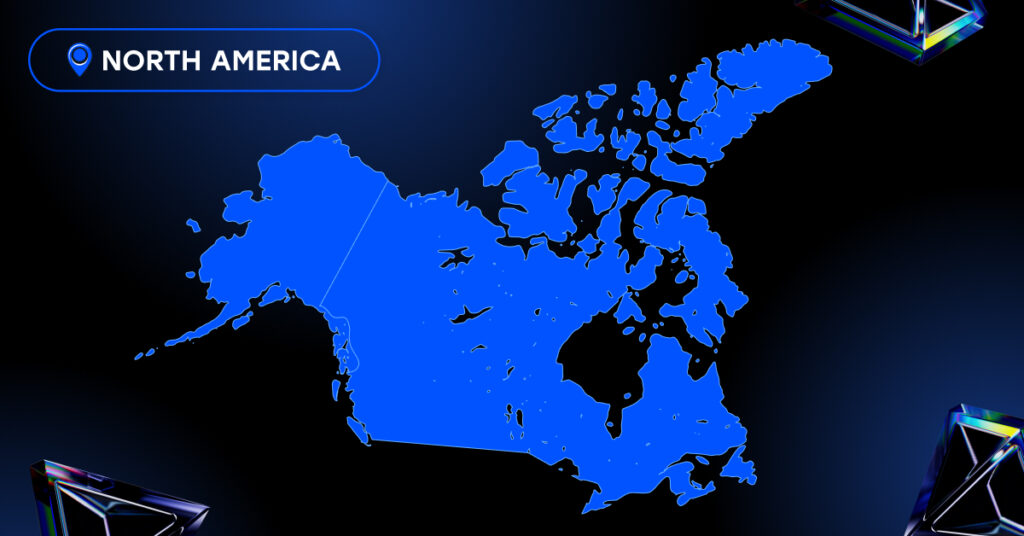
Canada
Let’s start with Canada, where the iGaming industry is steadily growing.
In Ontario, the leading hub for regulated iGaming, the market is managed by iGaming Ontario (iGO). This organization sets the rules for operators, issues licenses, and ensures compliance with provincial standards. Ontario’s regulated market has attracted over 40 operators.
By 2025, iGO plans to implement a centralized self-exclusion system. This system will allow players to block themselves from accessing any licensed online casino for a specified period (e.g., one week to five years), manage their account preferences, and control their registrations across all platforms. The goal is to strengthen player protection and promote responsible gaming.
While the exact requirements for operators have not been finalized, this system is expected to make the market safer for players. However, it could mean additional compliance efforts to meet these new standards for operators.
United States
The next big player is the U.S. Here, things are more complicated… much more.
In the United States, over 30 regions have legalized some form of online betting or gaming, but the rules vary widely across the country.
In New York, discussions continue about including iGaming platforms alongside its thriving sports betting market under a unified regulatory framework. If approved, this move could make New York one of the largest regulated markets in the country.
Pennsylvania and New Jersey are taking extra steps to protect players from iGaming addiction and financial harm by implementing tools like self-exclusion programs and spending limits.
On a national level, the Responsible Gaming Coalition (RGC), established in 2024, aims to extend these protections across the country in 2025.
Latin America and Caribbean: Emerging Giants in iGaming
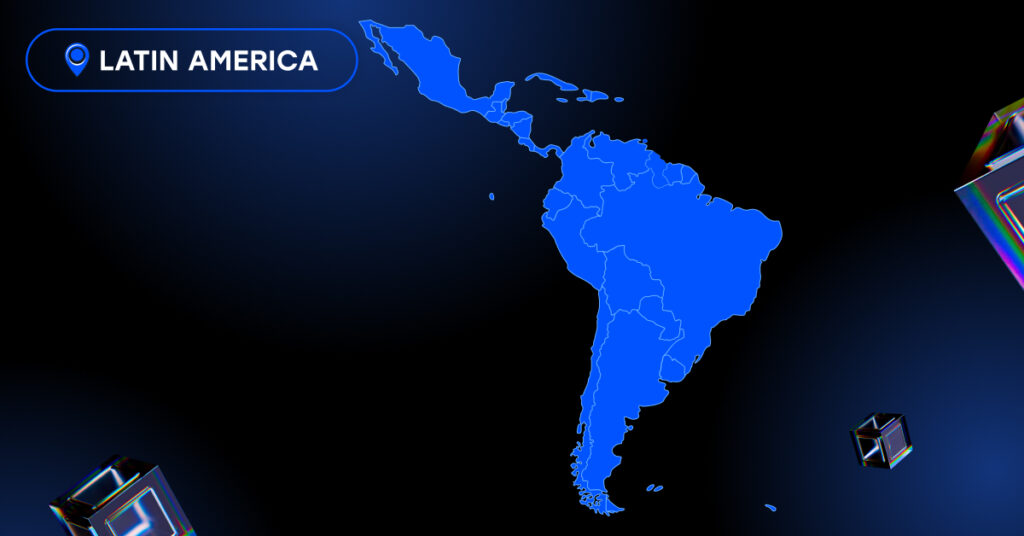
Mexico
Mexico has been slow to regulate its iGaming industry. For now, most land-based casinos are regulated, while iGaming remains a gray area.
Online platforms and sports betting operators currently rely on licenses for brick-and-mortar casinos instead of having their own.
By 2025, the government is expected to review this system and introduce clear rules for digital platforms, potentially leading to significant changes in the industry.
Brazil
Things are looking brighter for Brazil’s government.
Starting in January 2025, all iGaming operators will require licenses. Those operating without one will face heavy fines. Unlicensed operators will face severe penalties. Licensing will bring substantial, previously untapped revenue into the government’s coffers.
A 15% tax (IRPJ) will also be introduced for iGaming businesses, with the funds allocated to public programs such as education and healthcare.
Operators will be required to verify player identities and implement anti-money laundering measures. These measures will create a safer environment for both players and the industry.
Europe and Central Asia: Leading the Way in Regulatory Standards
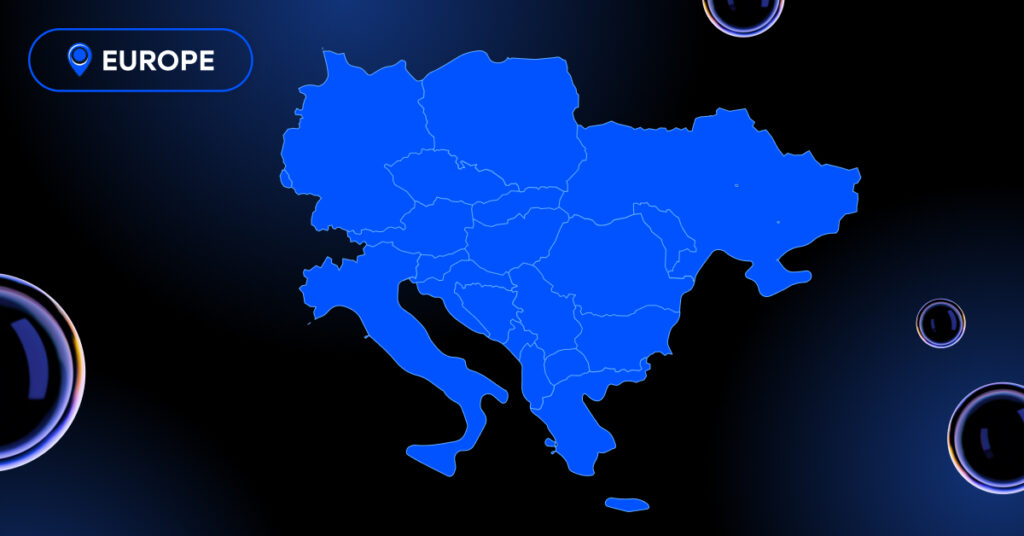
Germany
Let’s move to Europe — the center of regulation for EVERYTHING.
As expected, Germany is at the forefront of iGaming regulation. The market operates under the State Treaty on Gambling (GlüNeuRStV) and is overseen by the Joint Gambling Authority (GGL).
In 2025, running ads during prime-time hours will be restricted. The goal is to protect players from excessive exposure to iGaming promotions and to raise public awareness about responsible gaming practices.
Germany’s regulated iGaming market boasts over 54 licensed operators, with additional applications pending approval. While unlicensed platforms persist, the regulated sector continues to grow and generate substantial revenue. The 5.3% tax on slots and poker stakes generates over €400 million annually but remains a point of contention among operators.
Germany is setting a strong example of organized and comprehensive regulation in the iGaming industry.
Sweden
Regulated by Spelinspektionen (Swedish Gambling Authority), Sweden’s market stands out as a leader in iGaming regulation. With over 100 licensed companies, gambling revenue in the first three quarters of 2023 reached $1.8 billion, demonstrating a positive upward trend.
By mid-2025, all operators must follow the new B2B licensing system, aimed at shutting down illegal platforms. Player protection will also improve, with stricter monitoring of risky behaviors and tighter restrictions on bonuses.
Sweden is cracking down on payment companies that work with unlicensed casinos. Recent efforts include increased scrutiny of transactions and penalties for companies found to be violating the law, ensuring a safer and more transparent market.
France
Ah, France, the land of fine wine, baguettes, and a bustling underground iGaming market worth up to €1.5 billion.
Currently, France’s market, overseen by the National Gambling Authority (ANJ), is limited to sports betting, poker, and lotteries. The government is exploring the legalization of online gambling, including iGaming platforms and online casinos, in 2025 to combat the black market and generate additional revenue.
Strict anti-money laundering (AML) rules and advertising restrictions are already in place. In 2024, new measures were introduced, including performance reporting requirements for operators and increased penalties for violating advertising or compliance regulations. These steps highlight France’s commitment to stronger oversight and player protection.
United Kingdom
And finally, the royal guard…
In 2024, the UK government announced reforms based on the “High Stakes” white paper. By 2025, new rules will include financial checks for players spending over £125 monthly, limits on advertising to protect vulnerable groups, and a mandatory levy for research and problem gambling treatment.
East Asia and Pacific: Regulatory Progress and Challenges
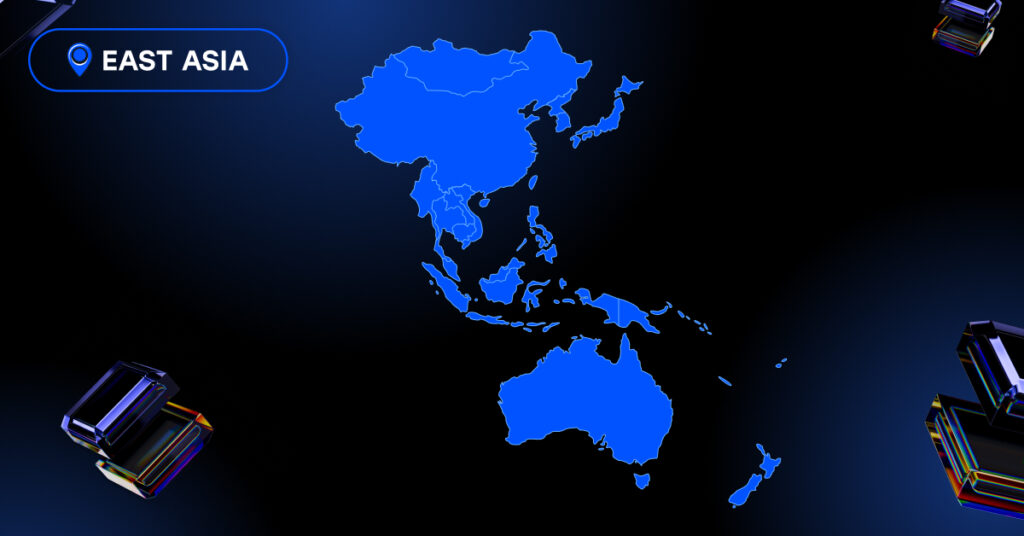
Japan
What about the Pacific fleet? Here, Japan takes the lead.
Japan’s iGaming laws focus primarily on land-based integrated resorts (IRs), while online gambling remains unregulated.
In 2024, Japan approved two IRs in Osaka and Nagasaki, expected to open by 2029. Discussions about regulating online platforms are gaining momentum due to the rise of illegal offshore operators targeting Japanese players. This unregulated activity poses risks such as fraud and lack of consumer protection, making regulation increasingly necessary.
By 2025, Japan may introduce stricter rules to control these platforms, but no formal policies have been announced yet.
Australia
Australia has some of the strictest iGaming rules in the world, focusing mainly on sports betting. The Australian Communications and Media Authority (ACMA) has blocked over 800 unlicensed platforms since 2017.
In 2024, ACMA introduced new rules banning iGaming ads during sports events from 6 a.m. to 8:30 p.m. Full enforcement of these restrictions is expected by mid-2025.
Recent updates also address loot boxes and in-game purchases. Now, such games will have age restrictions of 15+ or 18+. In addition, the government has introduced other measures to combat gambling addiction, such as a ban on the use of credit cards for online betting and the creation of a national self-exclusion registry.
China
In China, sports betting is the only legal form of gambling. All other types of iGaming are banned, and violations entail strict penalties.
China plans to strengthen its efforts against illegal platforms by collaborating with the Association of Southeast Asian Nations (ASEAN). This collaboration will focus on identifying and shutting down unlicensed operators and improving cross-border cooperation to disrupt illegal casino networks.
South Asia: The Next iGaming Hub
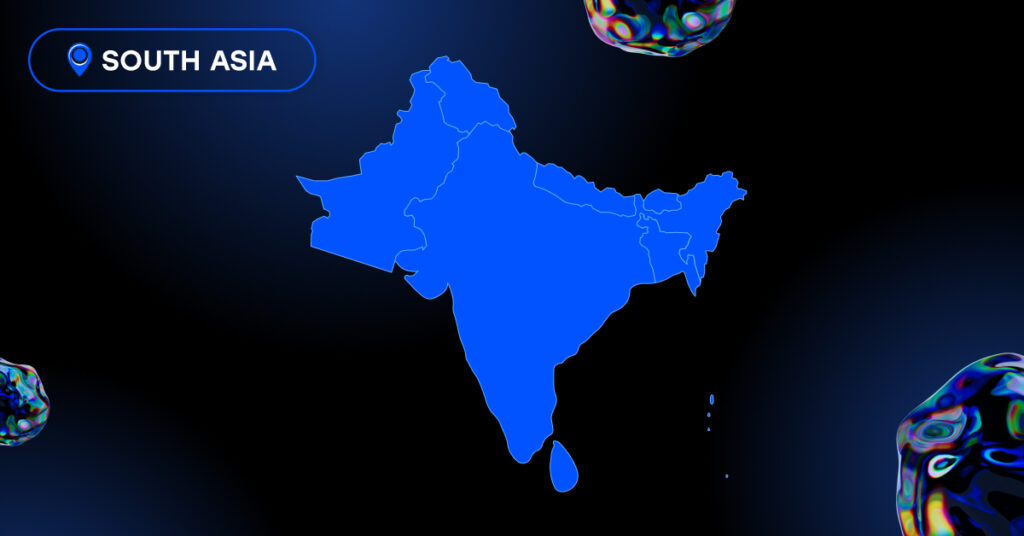
India
India’s iGaming market is expanding rapidly. It was valued at $2 billion in 2023 and is expected to exceed $3 billion by 2025.
Like in the U.S., regulations vary widely between states. For instance, rummy and fantasy sports are legal in states such as Karnataka and Tamil Nadu, while real money games remain banned in others.
The Ministry of Electronics and Information Technology started working on a unified framework to tackle issues like fraud and inconsistent rules in 2024. By 2025, India is likely to clarify distinctions between laws governing skill-based games and iGaming, creating more structured regulations for the growing market.
Sub-Saharan Africa: Unlocking iGaming Potential
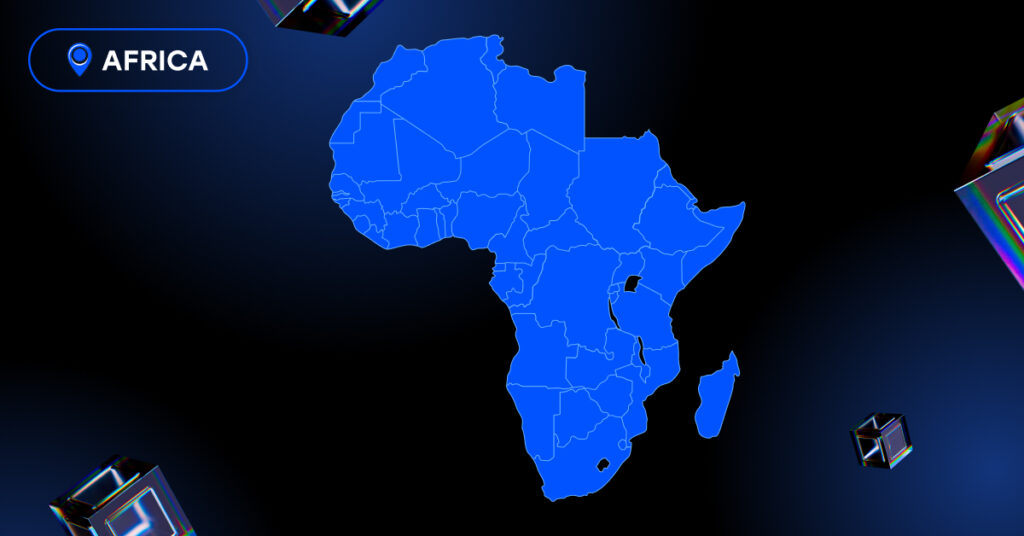
South Africa
The National Gambling Board (NGB) regulates iGaming in South Africa, primarily focusing on industry standards and consumer protection rather than strict enforcement. While online sports betting is legal and thriving, other forms of iGaming, such as online casinos and poker, are not yet regulated.
In 2024, legislators introduced the Remote Gambling Bill (B11-2024) to change this. The bill proposes giving provinces more control over licensing, advertising, and player protections. If the bill is passed, fully regulated online casinos could start operating in 2025. This potential legalization could generate over $400 million annually in tax revenue and unlock significant market potential.
Nigeria
Nigeria’s iGaming market is growing rapidly, driven by a young population and widespread mobile access.
The National Lottery Regulatory Commission (NLRC), along with state agencies, oversees the industry. However, the country lacks a unified system to regulate iGaming.
In 2025, the NLRC plans to implement a Central Monitoring System to enforce tighter advertising controls. This system will ensure compliance with new regulations, including restrictions on advertising to minors, vulnerable groups, and during specific time periods.
Kenya
The Betting Control and Licensing Board (BCLB) is responsible for regulating Kenya’s growing iGaming sector.
Betting companies in Kenya are subject to multiple taxes and fees, including a 15% tax on gross gaming revenue, a 30% corporate tax on profits, and a 16% income tax. Additionally, they must pay annual licensing and compliance fees.
In 2025, the government plans to enforce stricter rules on responsible gaming advertising and crack down on illegal operators. The BCLB estimates these measures will generate over $120 million annually.
Preparing for 2025
2025 is set to bring major changes to iGaming regulations worldwide, with many countries updating their laws to better control the industry.
Here’s what to expect:
- Brazil and Sweden are introducing stricter licensing systems to ensure companies operate legally and transparently.
- Governments are adding tools like self-exclusion systems and spending limits to protect younger and at-risk players from developing a gambling addiction.
- Advertising rules are tightening. In countries like Canada and Germany, ads targeting minors will be banned.
- Tax reforms are coming to places like Brazil and South Africa, aimed at increasing revenue for public services like healthcare and education.
- Regulators are focusing on money laundering risks, with stricter checks and better reporting requirements.
- Countries such as France and China are ramping up efforts to shut down unlicensed platforms.
These changes are expected to make iGaming safer for players and better regulated for governments. It’s a year of transformation that will shape the future of the industry.



